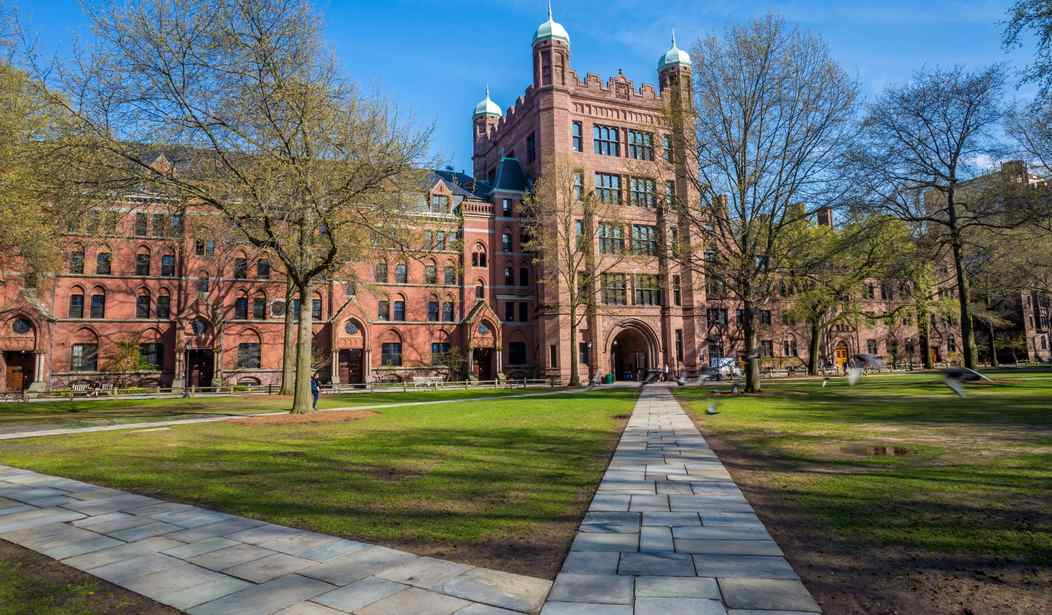Yale University has announced it’s changing the name of Calhoun College to honor Grace Murray Hopper, a distinguished graduate from the 1930s who was a computer scientist and naval officer.
“The decision to change a college’s name is not one we take lightly, but John C. Calhoun’s legacy as a white supremacist and a national leader who passionately promoted slavery as a ‘positive good’ fundamentally conflicts with Yale’s mission and values,” Yale President Peter Salovey said.
The change came months after the president said he would not change the name.
“At that time, as now, I was committed to confronting, not erasing, our history. I was concerned about inviting a series of name changes that would obscure Yale’s past,” said Salovey. “These concerns remain paramount, but we have since established an enduring set of principles that address them. The principles establish a strong presumption against renaming buildings, ensure respect for our past, and enable thoughtful review of any future requests for change.”
Yet, after campus protests erupted against the name and several professors of history and African American Studies presented a report making the case to rename the college, the university reversed its decision.
In that report, the professors made the case that “erasing” names is not the same as “changing” them.
History is one of the forms of knowledge at the core of the enterprise. To erase a university’s history is antithetical to the spirit of the institution. Erasing names is a matter of special concern, because those names are, in part, a catalog of the people whom the university has thought worthy of honor. Removing such names may obscure important information about our past.
To change, however, is not always to erase. Indeed, change is indispensable in a University that has evolved over more than three hundred years. When Yale rebuilt its campus in the tradition of the medieval English colleges in the 1920s and 1930s, it did so as part of a forward-looking plan to train the leaders of the twentieth century. Five decades ago, the University began to increase the numbers of women and people of color as students, faculty, and alumni. This demographic transformation has been, and will continue to be, crucial in allowing Yale to advance the frontier of excellence in research and to train the leaders of the century to come.
In making this report, the professors talked to students and held meetings about the impact of the name on the student body. Some students said they were offended by racism at Yale in general: “Such students stated that they see a pervasive white supremacy around the campus, in everything from the portraits that hang on walls, to the racial composition of the faculty, to the courses offered in the classrooms.”
This sentiment was reflected in a New York Times article from a couple of years ago when a black sophomore from Indianapolis said she felt uncomfortable being assigned to Calhoun College.
“I’m constantly thinking about Calhoun the slave owner staring me down,” Maya Jenkins said. “It’s supposed to be my home, but I feel like I can’t be my full self here.”
Students and professors alike were also troubled by the traditional use of “masters” when referring to professors. They said it was reminiscent of slaves calling their owners masters, even though the term has nothing to do with slavery; it is a title of respect to those who have mastered the subject they are teaching.
Despite this fact, however, some professors asked that the title be dropped, because black students should never “be asked to call anyone ‘master.’”
In the same spirit, the committee for renaming Calhoun College felt that the college should not put black students in the position of reliving an oppressive past. Calhoun might have been a senator, vice president, and secretary of war, but some historians have found that he should not be honored for these achievements because he used that influence to promote secession and slavery.
Some have even suggested that Yale change the name of the university because its founder Elihu Yale was a slave trader. It certainly seems that if Yale is going to be consistent about the influence of the past on students who are offended and that names associated with white supremacy undermine the mission of the university, then Yale should change every name that reflects a history of racism, including the name Yale itself.
If they don’t, it seems they are making more of a politically correct statement than instituting “change” out of principle. The committee tries to make it seem like a matter of principle by saying that they should only change the names of people who were actually honored for their white supremacy at the time of the original naming. But Calhoun was not selected in honor of his slavery ties, but because he was a praiseworthy statesmen.
The committee for renaming insists that changing the name is not the same as erasing history, yet as colleges across the United States are doing this at an increasing rate, one can’t help but picture Winston Smith in 1984 rewriting history at a rapid pace, not as a matter of principle, but as an effort to control thoughts. If we change names from history for reasons such as those given, we are removing from the public sphere the freedom people have to formulate their own thoughts, opinions, and judgments about the past. Those judgments have been made for them by those who want to impose their feelings and sentiments on others instead of allowing for free debate and free thinking on college campuses.









Join the conversation as a VIP Member